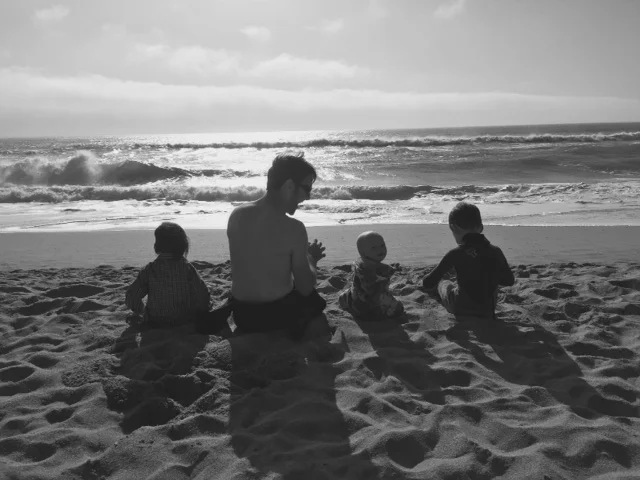“At times our own light goes out and is rekindled by a spark from another person. Each of us has cause to think with deep gratitude of those who have lighted the flame within us.”
This Thanksgiving, perhaps more than other years, I find myself in need of some rekindling. I find myself struck with the “meaning” of Thanksgiving at a time in history where our nation is grappling with discord, fear, injustice and inequality.
Growing up in a family where my father's side was Jewish and my mother's side was Christian, I have always felt that for our beautifully diverse nation Thanksgiving represents the potential for people of all races, ethnicities, and religions to unite and celebrate at one table.
When we listen to the news and feel that things are spiraling beyond our control in the other direction, we might find comfort in remembering Gandhi’s words to “Be the peace we wish to see in the world.” We may even find moments this Thanksgiving to gather together and draw courage from one another while we contemplate action to translate our anger and fear into concrete steps of helping create the world we want our children to grow up in.
But we must also keep in mind that whether we gather with like-minded friends, or family members with conflicting views, our children are listening and watching and we must set the tone and model this peace we wish to be for our children. I believe modeling how to handle our emotions and maintaining our own centeredness, while also being honest with our children about our feelings, are some of the greatest gifts we can give our children during these times.
When we try to pretend that nothing is wrong and our words don’t match our facial expressions or the outburst they just overheard, children often assume the worst. Because of the egocentric stage of young children, they may even assume that we are angry or upset with them. We can be honest without scaring our children by saying things like “Mommy is angry about some things that are happening that are not fair for all people, but our family is going to help make sure that things stay fair for all people.”
When politically heated discussions arise, we can try to bring the conversations in front of children back to neutral or set limits beforehand with adults about the tone so that all of our children feel secure. In order for children to develop the parts of their brain that code for compassion and self-control, they need not live in fear, but need loving reassurance from the adults around them that they are safe and protected and that the world is full of goodness and full of love.
My 8-year-old niece reminded her mother after a heated political exchange with a neighbor in New Orleans, "Mommy, remember what you told me? We won't let this fill our hearts with hate. We have to keep loving and fighting and filling our hearts with love. You are the kindest person I know and you can't hate anyone." It is difficult to stay grounded in love while deeply hurting and deeply angry, and yet perhaps now more than ever, this is what we are called to do.
We also model our centeredness when, during the hustle and bustle of the holiday season, we continue to include moments of being present and fully awake to our children. I believe that when children are listened to, respected, and allowed to express ideas and feelings that are different from our own, they grow up to be adults who will do the same for others. When we look our children in the eyes and say, "I am thankful for you, that of all the millions of possibilities, I am so thankful that I ended up with you," we light a little flame of love within them that is not easily extinguished. We invite you to celebrate and be present with your child or children this season, who truly are and will be the light for our world.
May our little lights shine this year, and may you have a truly Happy Thanksgiving.
Warmly,
Rebecca Walsh
“If there is to be peace in the world,
There must be peace in the nations.
If there is to be peace in the nations,
There must be peace in the cities.
If there is to be peace in the cities,
There must be peace between neighbors.
If there is to be peace between neighbors,
There must be peace in the home.
If there is to be peace in the home,
There must be peace in the heart.”

